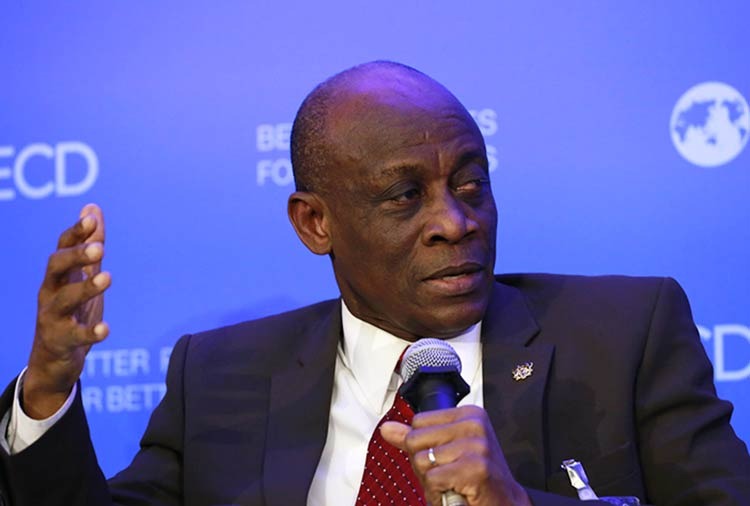Ghana’s latest Consumer Confidence Index (CCI) for the fourth quarter of 2018 shows a five-point decrease to 108.
Commenting on the reasons for this Nielsen Market Lead for West Africa Emerging Markets Yannick Nkembe says “the continued depreciation of the Cedi, the collapse of certain banks leading to job losses, and the high cost of credit and an inability to access credit have led to a drop in consumer sentiment in Ghana.”
The Nielsen Consumer Confidence and Spending Intentions survey was conducted on November 15 to 16, 2018 in Kenya, Ghana, and Nigeria among 1,500 respondents, using mobile methodology.
The sample has quotas based on age and gender for each country.
This decline in sentiment for Ghana is clearly reflected in Ghanaian consumers’ immediate-spending intentions, said a report issued by MediaInk Communications on behalf of Nielsen Africa.
“Only 40% Ghanaians say now is a good or excellent time to purchase what they want or need, a substantial eight-point drop compared to the previous quarter. Negative sentiment is also reflected in Ghanaian’s job prospects. Only 58% Ghanaians view their job prospects as excellent or good, experiencing a six-point drop compared to the previous quarter.
“Sentiment around the state of personal finances has also taken a slight hit with Ghanaians who think the state of their personal finances would be excellent or good over the next year having dropped nine points from the previous quarter to 67%. This in comparison to 31% who think that the state of their personal finances is not so good or bad, which represents a substantial 13% increase in this negative sentiment,” the report stated.
Looking at whether Ghanaians have spare cash to spend, 42% said yes, versus 53% in the previous quarter.
In terms of their spending priorities, once they meet their essential living expenses, the highest number of consumers (77%) would put their spare cash into savings and the same number will spend on home improvements, while 70% said they would invest in shares/mutual funds.
Elaborating on these results, Nkembe says; “Consumer confidence in West Africa declined in the last quarter of 2018. However, it still falls on the positive side of the spectrum and we hope to see a rebound in confidence levels in 2019.”
Nigeria
Meanwhile, Nigeria’s CCI has dropped one point to 117, presenting a diverse picture of consumer sentiment across West Africa.
In terms of Nigeria’s performance, Nielsen Nigeria MD Ged Nooy comments; “In Q4’18, the consumer outlook in Nigeria dipped marginally versus the previous quarter. Continued inflationary pressures and uncertainties around the elections could have impacted consumer sentiment, leading to a one-point drop in the consumer confidence index. However, despite the drop, consumers showed an increased propensity towards stocking up on the necessities as a result of year-end festivities.”
When it comes to job prospects, 62% Nigerians view their prospects as excellent or good (a 6 point increase from the previous quarter) and 31% view them as not so good or bad. In terms of the state of their personal finances over the next 12 months, the same amount as the previous quarter (79%) say excellent or good. In addition, the number of Nigerian consumers who feel now is a good or excellent time to purchase what they need or want has increased three points to 46%.
Looking at whether Nigerians have spare cash, exactly half (50%) say yes, down five points from the previous quarter. In terms of what their spending priorities are once they meet their essential living expenses, the highest number of consumers (73%) would put their spare cash into savings, followed by 71% on home improvements and 68% who would invest in stocks and mutual funds.




